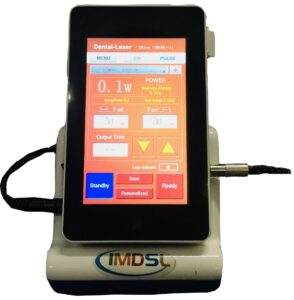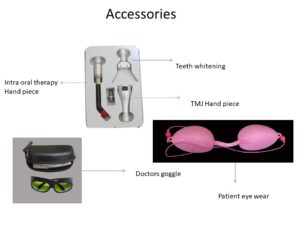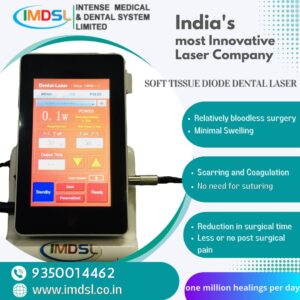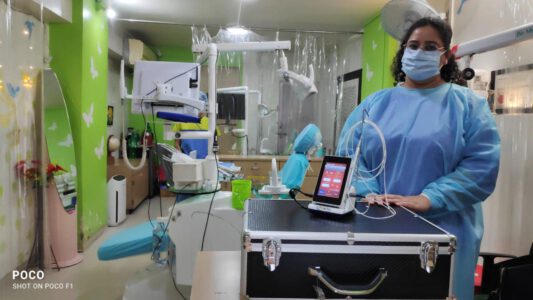Guidelines for Safely Using Dental Lasers in Dentistry Practices
As the field of dentistry continues to advance, dental lasers have emerged as a revolutionary tool that offers numerous benefits for both dentists and patients. Dental lasers are precise, efficient, and can be used in a variety of dental procedures, ranging from soft tissue treatments to hard tissue interventions.
However, like any advanced technology, the safe and appropriate use of dental lasers is essential to ensure optimal patient outcomes and minimize risks. In this blog, we will outline the guidelines that dentists should follow when incorporating dental lasers into their practice.

Get Comprehensive Training and Certification
Before using dental lasers in any clinical setting, dentists and their dental team must receive comprehensive training and certification in laser dentistry.
This should encompass both theoretical knowledge and hands-on training to ensure proficiency in using the specific type of dental laser being employed.
Training programs offered by reputable institutions and laser manufacturers will cover laser safety, appropriate wavelengths, tissue interactions, and case selection.
Identify Suitable Cases
Not every dental procedure requires the use of a dental laser. Dentists should carefully evaluate each case and determine when laser therapy is the best option for their patient. Dental lasers are particularly useful in soft tissue procedures, such as gingival recontouring, frenectomies, and treating oral lesions. Additionally, some hard tissue applications like cavity preparation and endodontic treatments can benefit from laser technology.
Conduct a Thorough Patient Assessment
Before commencing any dental laser procedure, a comprehensive patient assessment is crucial. Evaluate the patient’s medical and dental history, as well as any contraindications for laser use. Patients with certain medical conditions or taking specific medications may not be suitable candidates for laser treatments.
Laser Safety Precautions
Implement strict laser safety protocols within the dental practice. Provide all staff members with appropriate laser safety training and ensure that they understand and adhere to safety guidelines. Use proper personal protective equipment (PPE) during laser procedures, including laser-specific eyewear for both the dentist and the patient.

Practice Standard Precautions
Incorporate standard precautions to maintain a clean and sterile environment during dental laser procedures. Follow proper infection control protocols and ensure the dental laser handpiece and accessories are cleaned, disinfected, and sterilized as per manufacturer instructions.
Determine Appropriate Laser Settings
Different dental lasers have various settings for power, pulse duration, and delivery modes. Select the appropriate laser settings based on the procedure and the specific needs of the patient. Using the wrong settings can lead to complications or insufficient treatment outcomes.
Manage Pain and Discomfort
Dental lasers are often associated with reduced pain and discomfort compared to traditional techniques. However, patients may still experience some degree of discomfort. Consider using local anesthesia or topical anesthetics to manage pain, especially for more extensive procedures.
Post-Operative Care
Provide clear post-operative instructions to patients to facilitate proper healing and minimize potential complications. Advise patients on potential side effects, such as swelling or sensitivity, and offer guidance on managing them.
Keep Abreast of Advancements
Stay up-to-date with the latest advancements in dental laser technology and techniques. Attend continuing education courses, workshops, and conferences to expand your knowledge and enhance your skills in laser dentistry.

Integrating dental lasers into dental practice offers numerous benefits, but it requires dentists to adhere to strict guidelines for safe and effective use. By obtaining proper training, identifying suitable cases, practicing laser safety precautions, and staying informed about advancements in the field, dentists can confidently provide their patients with the advantages of dental laser treatments while ensuring optimal outcomes and patient satisfaction.


Comments